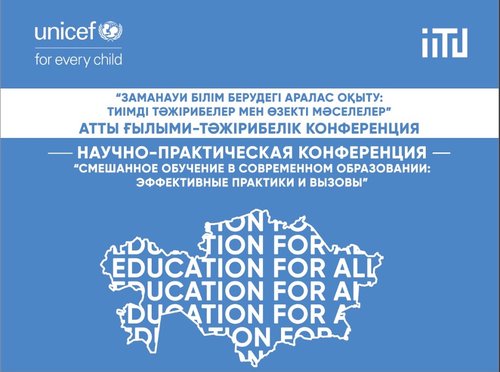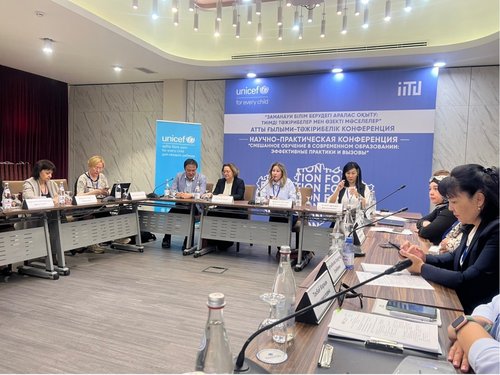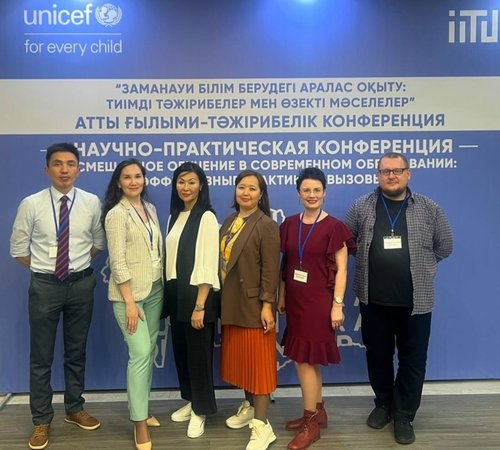On April 14, 2023, a scientific-practical conference was held on the topic "Blended learning in modern education: effective practices and challenges", organized by IITU JSC in collaboration with UNICEF. One of the key issues of the conference was the implementation of the Akelius pilot program in schools in Astana, Almaty and Shymkent. This project is aimed at improving the literacy of children affected by migration processes, as well as children in need of support to replenish knowledge.

The participants of the conference exchanged experience on the implementation of blended learning using the Akelius application in the regions participating in the project and discussed topical issues in organizing a digital environment in schools.
Candidate of Philological Sciences, Associate Professor of IITU JSC Oxana Bublikova held a master class on blended learning strategies during the conference. She recalled that the goal of this approach is to make learning more personalized and flexible, to respond to the needs of individual students, to involve and facilitate the interaction of students.
Foreign experts were also involved in the conference. Thus, Master of Philology Pavel Polubinsky from Minsk spoke about the practice of using educational information and communication technologies in the classroom for the discipline "Foreign language" for students of IT specialties. He shared the resources that he uses regularly and showed their functionality.

Akbota Yessematova, Head of the Department of the State Enterprise “Methodical Center” of the Akimat of Astana, spoke about the implementation of the Akelius pilot program in the capital's schools. According to her, one of the objectives of the program is to study the problems of poor academic performance.
“The work requires a differentiated approach from teachers, since children of different ages and different levels of learning study in groups. Some children have been studying Russian as part of the school curriculum for 2-3 years, and some are learning the language for the first time along with their native Kazakh. Basically, these are children who came to their historical homeland from Uzbekistan, Mongolia, China, Tajikistan, Turkmenistan, Afghanistan. For social adaptation, such children also need psychological support,” Akbota Bakhytovna notes in her report.
According to her, since October 2021, training has been conducted on the basis of the integration of the traditional format with the digital program at levels A0 and A1. And by the end of the second year of study, students reach levels A1.1 and A2 according to the level system of the Common European Framework of Reference for Languages (CEFR).
“The blended learning format involves conducting classes in face-to-face mode, when the student is in direct contact with the teacher and at the same time uses a gadget with a built-in language program. Such a process of mastering the Russian language not only introduces students to the rules of a non-native language, but also expands the boundaries of general educational skills, research skills, critical thinking skills, and the skill of using IT technologies,” she explained.

According to the speakers, it is necessary to provide additional methodological support to teachers in the regions affected by migration processes, to share with them the methodological recommendations received during the implementation of the project.
The speakers believe that it is necessary to improve specialized education in the preparation of teaching staff, taking into account the ideas of blended learning, as well as to organize close interaction between the university community and representatives of school education.
